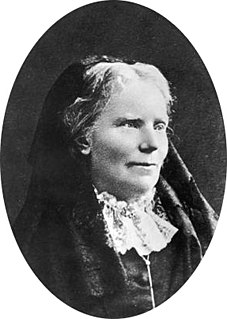A Quote by Thomas Hardy
This good fellowship - camaraderie - usually occurring through the similarity of pursuits is unfortunately seldom super-added to love between the sexes, because men and women associate, not in their labors but in their pleasures merely. Where, however, happy circumstances permit its development, the compounded feeling proves itself to be the only love which is strong as death - that love which many waters cannot quench, nor the floods drown, besides which the passion usually called by the name is as evanescent as steam.
Quote Topics
Added
Associate
Because
Besides
Between
Camaraderie
Cannot
Circumstances
Death
Development
Drown
Evanescent
Feeling
Fellowship
Floods
Good
Happy
However
Itself
Love
Many
Men
Men And Women
Merely
Name
Nor
Only
Only Love
Passion
Permit
Pleasures
Proves
Quench
Seldom
Sexes
Similarity
Steam
Strong
Super
Through
To Love
Unfortunately
Waters
Which
Women
Related Quotes
But grief still has to be worked through. It is like walking through water. Sometimes there are little waves lapping about my feet. Sometimes there is an enormous breaker that knocks me down. Sometimes there is a sudden and fierce squall. But I know that many waters cannot quench love, neither can the floods drown it.
I have neither the scholar's melancholy, which is emulation; nor the musician's, which is fantastical; nor the courtier's, which is proud; not the soldier's which is ambitious; nor the lawyer's, which is politic; nor the lady's, which is nice; nor the lover's, which is all these: but it is a melancholy of mine own, compounded of many simples, extracted from many objects, and indeed the sundry contemplation of my travels, which, by often rumination, wraps me in a most humorous sadness.
Love is not feeling, child, nor even the passion of lovers, which always seeks only its own gratification. It is the act of caring, of giving, the act of protecting the weak, the helpless, the imprisoned and the desperate. Love is the hand raised in defence. You cannot love and keep your hands clean.
Many great persons have been of opinion that love is no other thing than complacency itself, in which they have had much appearance of reason. For not only does the movement of love take its origin from the complacency which the heart feels at the first approach of good, and find its end in a second complacency which returns to the heart by union with the thing beloved--but further, it depends for its preservation on this complacency, and can only subsist through it as through its mother and nurse; so that as soon as the complacency ceases, love ceases.
The real power is love, that which empowers others, that which arouses action, that which no chain is able to hold back, for even on the Cross or on the death bed one is able to love. One does not need youthful beauty, nor recognition or approval, nor money or prestige. Let love simply bloom...and it is unstoppable.
Isn't it grand, isn't it good, that language has only one word for everything we associate with love - from utter sanctity to the most fleshly lust? The result is perfect clarity in ambiguity, for love cannot be disembodied even in its most sanctified forms, nor is it without sanctity even at its most fleshly. Love is always simply itself, both as a subtle affirmation of life and as the highest passion; love is our sympathy with organic life.
It is not merely our own desire but the desire of Christ in His Spirit that drives us to grow in love. Those who seldom or never feel in their hearts the desire for the love of God and other men, and who do not thirst for the pure waters of desire which are poured out in us by the strong, living God, are usually those who have drunk from other rivers or have dug for themselves broken cisterns.
Today our (Society of Jesus) prime educational objective must be to form men (and women) for others; men (and women) who will live not for themselves but for God and his Christ - for the God-man who lived and died for all the world; men (and women) who cannot even conceive of love of God which does not include love for the least of their neighbors; men (and women) completely convinced that love of God which does not issue in justice for others is a farce.
It is a well-established fact that in healthy loving women, uninjured by the too frequent lesions which result from childbirth, increasing physical satisfaction attaches to the ultimate physical expression of love. ... Love between the sexes is the highest and mightiest form of human sexual passion.
It is not merely the brevity by which the haiku isolates a particular group of phenomena from all the rest; nor its suggestiveness, through which it reveals a whole world of experience. It is not only in its remarkable use of the season word, by which it gives us a feeling of a quarter of the year; nor its faint all-pervading humour. Its peculiar quality is its self-effacing, self-annihilative nature, by which it enables us, more than any other form of literature, to grasp the thing-in-itself.
I love, cherish, and respect women in my mind, in my heart, and in my soul. This love of women is the soil in which my life is rooted. It is the soil of our common life together. My life grows out of this soil. In any other soil, I would die. In whatever ways I am strong, I am strong because of the power and passion of this nurturant love.







































